Our 2020 UTS Alumni Award winners achieve excellence across a range of professional and academic backgrounds. They demonstrate the immense talent that exists within the alumni community, both professionally and in the broader community and exemplify the UTS core values — commitment to excellence, innovation, entrepreneurship and social justice.
Meet your winners
UTS Chancellor’s Award for Excellence and Science Award
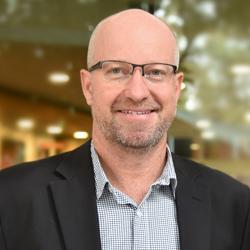
Professor Darren Martin
PhD Science, 1996; Bachelor of Applied Science (Materials Science), 1993
Professor Darren Martin is a global leader in research and the commercialisation of polyurethanes, polymer nanocomposites and renewable nanomaterials. In addition to many high impact publications, his research has led to several licensed and granted patents, with a proven track record in end-to-end innovation.
Professor Martin leads the Martin Group – part of the University of Queensland’s Australian Institute for Bioengineering and Nanotechnology – where he takes fundamental discoveries in materials science and biology and progresses the science, engineering, regulation and translation of these technologies for the benefit of Australia. Professor Martin is also the Founder and Chief Scientific Officer of the successful UQ start-up company TenasiTech Pty Ltd.
Arts and Social Sciences Award
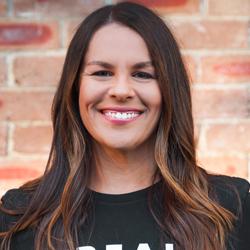
Mayrah Sonter
Master of Arts (Journalism), 2012; Bachelor of Communications, 2005
Mayrah Sonter is a proud Wiradjuri woman who has forged a successful career as a communications specialist, events producer and journalist, driven by her passion for empowering First Nations peoples.
She is co-founder and co-Director of 33 Creative, co-founder of Indigenous Business and host of ‘The Real’ Podcast. She is also Chair of the National Aboriginal and Islander Skills Development Association and a member of the NSW Aboriginal Housing Office Board, National Indigenous Culinary Institute and Commonwealth Bank Indigenous Advisory Council.
Community Award
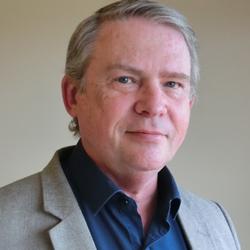
Geoffrey McNamara AM
Graduate Certificate in Design Tech, 2000; Diploma of Teaching in Technical Education, 1989; Bachelor of Adult Education, 1997
Geoffrey McNamara AM is a passionate and decorated champion for science and public school education. He has been a teacher for 33 years, and from 2006 until recently he taught at Melrose High School in Canberra. In 2008 he developed the Science Mentors Program, connecting students in years 8 to 10 with scientific mentors, tapping into their passion for science and giving them real-world experience.
Geoff has authored over 100 papers for science magazines, published several books and helped to develop several telescopes including the McNamara–Saunders Astronomical Teaching Telescope. In 2018, Geoff was awarded a Member of the Order of Australia for significant service to secondary education, particularly in the disciplines of science and astronomy.
Design, Architecture and Building Award
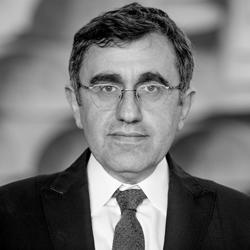
Angelo Candalepas
Bachelor of Architecture, 1992
Angelo Candalepas is an award-winning architect and a Fellow of the Australian Institute of Architects. Within a year of establishing his own studio in 1994, Angelo won an international competition for housing in Pyrmont. In 1999 he established Candalepas Associates, which has won a number of awards including the Australian Institute of Architects Sulman Medal for Public Architecture (2009, 2018), the Frederick Romberg National Architecture Award (2011), the Seidler Award for Commercial Architecture (2016) and the Aaron M Bolot Award for Residential Architecture (2011, 2017).
In 2016, Angelo was awarded the Premier’s Award for Architecture in NSW.
Engineering and Information Technology Award
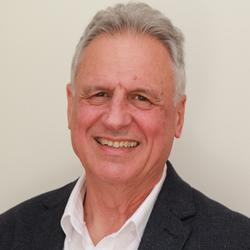
Dr Paul Beinat
PhD Computing Sciences, 2008
Dr Paul Beinat is a Principal at Finity Consulting, where he heads up the Artificial Intelligence team. He has over 40 years’ experience in the insurance industry in management, technical and advisory roles. He is the designer and developer of Colossus and Claims Outcome and has been involved in Finity’s Artificial Immune System product from research to inception.
Dr Beinat is an Adjunct Professor at UTS, where he is an advisor to the Centre for Artificial Intelligence and a member of the executive leadership team at the Advanced Analytics Institute.
Indigenous Australian Alumni Award
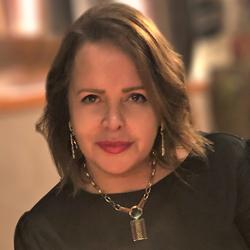
Phillipa McDermott
Bachelor of Arts (Communication), 1998
Phillipa McDermott is a proud Wakka Wakka and Mulinjali woman who has been Head of Indigenous Employment and Diversity at the ABC since 2013. Under her leadership, the ABC has for the first exceeded its 2 per cent Indigenous employment target.
Prior to joining the ABC, Phillipa worked as a radio broadcaster, Manager of the Economic Development stream of the Commonwealth Government’s Indigenous Employment Program NSW, and Media Manager for the Aboriginal and Torres Strait Islander Commission NSW. She is currently the Chair of Bangarra Dance Theatre.
International Alumni Award
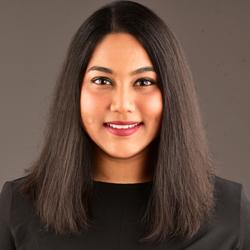
Madhavi Shankar
Master of Business Administration, 2015; Master of Engineering Management, 2014
Madhavi Shankar is an entrepreneur who is passionate about creating equal opportunities and employment for women. Following a stint as Asia–Pacific Product Manager for Vodlo, an Australian software development enterprise, she returned to India with a mission to create impact using technology in underserved sectors. In 2017, she co-founded the app SpaceBasic, a platform to manage hostels and student housing communities.
Since launching, SpaceBasic has grown rapidly and is on track to reach 1 million users in 2020. As CEO, Madhavi has pledged 1 per cent of the app’s profits to go towards educating women. In 2019 she was named as one of the Top 60 Women Transforming India by the Indian Government and the United Nations. She has given several TEDx speeches, and in 2020 was named in the Forbes 30 under 30 Asia.
Health Award
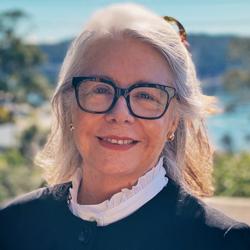
Associate Professor Leanne (Lulu) Zalapa
Bachelor of Nursing, 1993
Associate Professor Leanne (Lulu) Zalapa is a health industry leader with an extensive career in nursing and philanthropic services. Over the course of her 16-year tenure as CEO and Founder of the Prince of Wales Hospital Foundation, she raised some $50 million for infrastructure, research, equipment, and patient care projects including the Nelune Comprehensive Cancer Centre and the Louisa Hope Fund for Nurses. Associate Professor Zalapa also launched other charities including Dry July and Dreams2Live4, and is currently an Adjunct Associate Professor in the UTS Faculty of Health.
Law Award
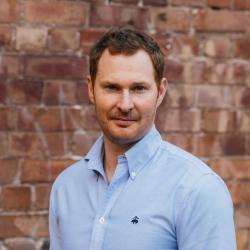
Dominic Woolrych
Juris Doctor, 2012; Bachelor of Business, 2009
Dominic Wollrych is CEO of Lawpath, Australia’s largest and fastest growing online legal platform, recognised as one of the top 10 legal start-ups in Australia and top 50 in the world. Lawpath has enabled legal practitioners to participate in the gig economy and helped over 130,000 Australian businesses access legal services at a fraction of the time, cost and complexity of the traditional system.
Dominic’s prior roles include Corporate Lawyer at MinterEllison Lawyers and Criminal Solicitor at the Public Interest Advocacy Centre. Dominic also founded OnDemand Training Group, training workers across well-known rideshare platforms in over 15 cities. He is a founding member of the Australian Legal Tech Association, and an Adjunct Professor at UTS Law School.
UTS Business School Award
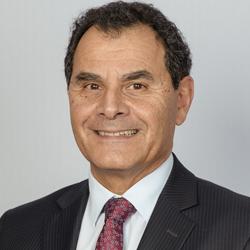
George Savvides AM
Master of Business Administration, 1985
George Savvides has over 30 years of management and board experience in the health care sector, government enterprises and not-for-profits. From 2002 to 2016, he was CEO of Australia’s largest health fund, Medibank Private. He also served as Chair of World Vision Australia for 18 years and is a former Chair of Macquarie University Hospital. George is currently Chair of SBS Australia and Next Science, and a board member of Insurance Australia Group and Ryman Healthcare.
In early 2020, George was made a member of the Order of Australia for significant service to the community, charitable groups and business.
Young Alumni Award

Emma Watkins
Master of Media Arts Production, 2012
Emma Watkins is a performer, filmmaker and charity ambassador, best known as the first female member of The Wiggles. Alongside touring the world as the beloved Yellow Wiggle and winning two ARIA Awards, Emma is strongly committed to supporting young children in the Deaf Community and is an ambassador for StorySign – an app that translates written text into sign language. She also regularly incorporates sign language into her performances, ensuring more children can enjoy The Wiggles, and is collaborating with Deaf artists to direct and produce multidisciplinary film works that move and inspire.
Emma is also a UNICEF Ambassador and the NSW Ambassador for Endometriosis Australia.
*Alumni Award profiles written at the time of the Awards Presentation in 2019.

